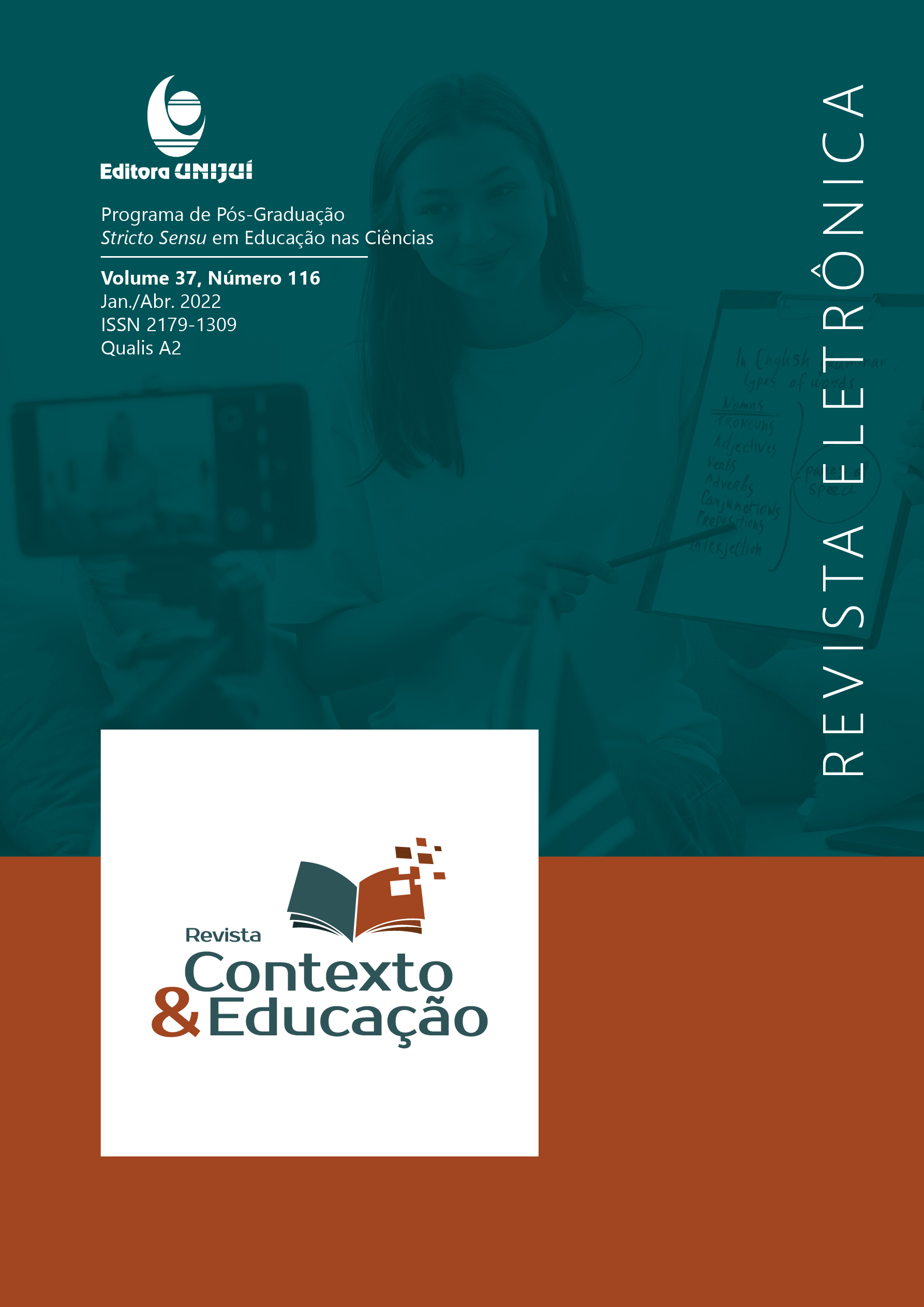RESSIGNIFICANDO OS ESTÁGIOS OBRIGATÓRIOS DO CURSO DE LETRAS/EAD/UFMS: OS DESAFIOS IMPOSTOS PELA PANDEMIA, AS ESTRATÉGIAS E AS POSSIBILIDADES
REFRAMING THE PRACTICUM IN DISTANCE EDUCATION LANGUAGE AND LITERATURE COURSE FROM UFMS: THE CHALLENGES IMPOSED BY THE PANDEMIC, THE STRATEGIES AND THE POSSIBILITIES
DOI:
https://doi.org/10.21527/2179-1309.2022.116.12686Keywords:
Teacher education. Bachelor of education. Emergency remote teaching.Abstract
The pandemic caused by Covid-19 enforced us to rethink and reorganize several university actions, amongst them, the continuation of the Bachelor of Education Practicums so it was possible to comply with current legislation and emergency measures adopted. In this work, we discuss the development of the Practicum activities taken place in distance education Language and Literature course, with emphasis in Portuguese and Spanish, from UFMS, during the pandemic period in order to describe and analyze the reorganization of this curricular component during emergency remote teaching (ERT), reflecting on the appraisal carried out by the students and the possible impacts of this new format on the education of these teachers. From the combination of quantitative and qualitative data generation methods, we analyze the effects of changes in this curricular component under the theoretical framework of Piconez (1994, 2004), Pimenta (2009), Santos et al. (2020), between others, as for the Practicum, and of Freire (1987), Hooks (2017) and Souza (2006), concerning teacher education. As results, we highlight the mostly positive evaluation by research participants in relation to the Practicum, their optimist expectations about their professional future, as well as the difficulties that impacted teacher education, especially in regard to professional socialization.
Downloads
Published
How to Cite
Issue
Section
License
Copyright (c) 2021 Revista Contexto & Educação

This work is licensed under a Creative Commons Attribution 4.0 International License.
By publishing in Revista Contexto & Educação, authors agree to the following terms:
All works are published under the Creative Commons Attribution 4.0 International License (CC BY 4.0), which allows:
Sharing — to copy and redistribute the material in any medium or format;
Adaptation — to remix, transform, and build upon the material for any purpose, even commercially.
These permissions are irrevocable, provided that the following terms are respected:
Attribution — authors must be properly credited, a link to the license must be provided, and any changes made must be indicated.
No additional restrictions — no legal or technological measures may be applied that legally restrict others from doing anything the license permits.
Notices:
The license does not apply to elements that are in the public domain or covered by legal exceptions.
The license does not grant all necessary rights for specific uses (e.g., image rights, privacy, or moral rights).
The journal is not responsible for the opinions expressed in the articles, which are the sole responsibility of the authors. The Editor, with the support of the Editorial Board, reserves the right to suggest or request modifications when necessary.
Only original scientific articles presenting research results of interest that have not been previously published or simultaneously submitted to another journal with the same purpose will be accepted.
Mentions of trademarks or specific products are intended solely for identification purposes and do not imply any promotional relationship by the authors or the journal.
License Agreement (for articles published from October 2025): Authors retain the copyright to their article and grant Revista Contexto & Educação the right of first publication.


